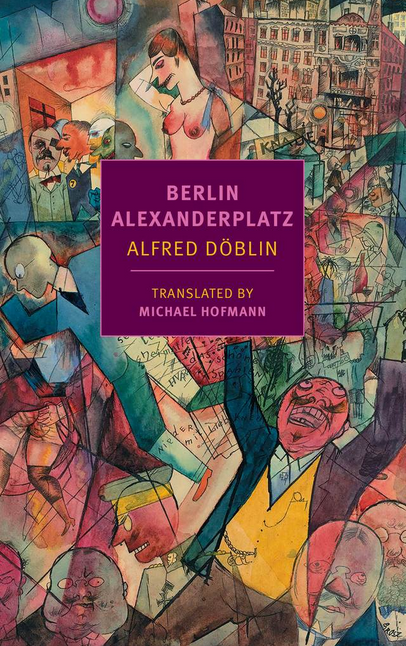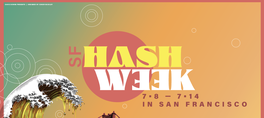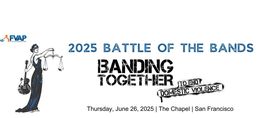The Goethe Institut San Francisco in conjunction with City Lights Booksellers and New York Review Books present an evening re-exploring the classic work of German writer Alfred Döblin, Berlin Alexanderplatz, on the eve of the release of a new translation by Michael Hoffmann published by New York Review Books. The evening is unique as it utilizes a joint examination of the novel juxtaposed against Werner Fassbinder's epic 15 hour film treatment of the book. Local scholars in German literature and history will read from the novel, discuss elements of the story, show film clips from Fassbinder's film, and participate in a roundtable discussion. Film and novel are reflected against each other to explore the Weimar period and its significance in modern times. Alfred Döblin's Berlin Alexanderplatz is considered one of the most innovative works of Weimar Germany. It's collage-like form and stream of consciousness narrative drive the reader into the metropolis of Berlin in the 1920's exploring all its complexity. In 1983 Werner Rainer Fassbinder released his film adaptation of Berlin Alexanderplatz which gained a cult following. Susan Sontag penned an appreciation of the film, and Michael Mann and Francis Ford Coppola have cited it as one of their greatest influences. This evening utilizes both novel and film to bring us closer to the life and work of Alfred Döblin and the Weimar Period.
Speakers:
- Deniz Göktürk, Chair, Departement of German, UC Berkley
-Thomas O. Haakenson, Associate Professor, Critical Studies and Visual Studies CCA
- Adrian Daub, Professor of German Studies and Comparative Literatur, Stanford University
- Mel Gordon, Professor of Theatre History Emeritus, UC Berkeley
FREE ADMISSION
The issues explored will include:
-How Doblin's work speaks to us today.
-The rise of fascism in Germany in the 20th century
-Sexual freedom in the Weimar Period
-Crime in Berlin
-Jewish Assimilation and Separatism
-The critical reception of Fassbinder's Berlin Alexanderplatz adaptation after its release
Alfred Döblin (1878–1957) was born in German Stettin (now the Polish city of Szczecin) to Jewish parents. When he was ten his father, a master tailor, eloped with a seamstress, abandoning the family. Subsequently his mother relocated the rest of the family to Berlin. Döblin studied medicine at Friedrich Wilhelm University, specializing in neurology and psychiatry. While working at a psychiatric clinic in Berlin, he became romantically entangled with two women: Friede Kunke, with whom he had a son, Bodo, in 1911, and Erna Reiss, to whom he had become engaged before learning of Kunke’s pregnancy. He married Erna the next year, and they remained together for the rest of his life. His novel The Three Leaps of Wang Lun was published in 1915 while Döblin was serving as a military doctor; it went on to win the Fontane Prize. In 1920 he published Wallenstein, a novel set during the Thirty Years’ War, which was an oblique comment on the First World War. He became president of the Association of German Writers in 1924, and published his best-known novel, Berlin Alexanderplatz, in 1929, achieving modest mainstream fame while solidifying his position at the center of an intellectual group that included Bertolt Brecht, Robert Musil, and Joseph Roth, among others. He fled Germany with his family soon after Hitler’s rise, moving first to Zurich, then to Paris, and, after the Nazi invasion of France, to Los Angeles, where he converted to Catholicism and briefly worked as a screenwriter for Metro-Goldwyn-Mayer. After the war he returned to Germany and worked as an editor with the aim of rehabilitating literature that had been banned under Hitler, but he found himself at odds with conservative postwar cultural trends. He suffered from Parkinson’s disease in later years and died in Emmendingen in 1957. Erna committed suicide two months after his death and was interred along with him.
What has been said of the work of Alfred Döblin:
The story of Franz Biberkopf is the Éducation sentimentale of the petty thief. The most extreme, dizzying, last, and most advanced embodiment of the old bourgeois bildungsroman.
—Walter Benjamin
I found myself reading Berlin Alexanderplatz in a way that you could hardly call reading—more like devouring, gobbling, gulping down. And these expressions still don’t do justice to that way of reading, which dangerously often wasn’t reading at all, but more life, suffering, despair, and fear.
—Rainer Werner Fassbinder
A classic German novel of the criminal demimonde of the Weimar era...Hofmann’s version is vigorous and fresh, bringing Döblin to a new generation of readers. A welcome refurbishing of a masterpiece of literary modernism, one of the most significant German novels of the 20th century.
—Kirkus starred review
[A] major writer who grappled with the roots of darkness in our time....
—Ernst Pawel, The New York Times
His was an extraordinary mind.
—Philip Ardagh, The Guardian
Without the futurist elements of Döblin’s work from Wang Lun to Berlin Alexanderplatz, my prose is inconceivable.... He’ll discomfort you, give you bad dreams. If you’re satisfied with yourself, beware of Döblin.
—Günter Grass
I learned more about the essence of the epic from Döblin than from anyone else. His epic writing and even his theory about the epic strongly influenced my own dramatic art.
—Bertolt Brecht
As we look back over the rich literary output of this great writer, as we look back over the long and fruitful life of this fighter and this friend of man, this perennial spring of spiritual life, we venture to ask: When will the gentlemen of the Nobel Prize jury discover him?
—Ludwig Marcuse, Books Abroad
show less
Speakers:
- Deniz Göktürk, Chair, Departement of German, UC Berkley
-Thomas O. Haakenson, Associate Professor, Critical Studies and Visual Studies CCA
- Adrian Daub, Professor of German Studies and Comparative Literatur, Stanford University
- Mel Gordon, Professor of Theatre History Emeritus, UC Berkeley
FREE ADMISSION
The issues explored will include:
-How Doblin's work speaks to us today.
-The rise of fascism in Germany in the 20th century
-Sexual freedom in the Weimar Period
-Crime in Berlin
-Jewish Assimilation and Separatism
-The critical reception of Fassbinder's Berlin Alexanderplatz adaptation after its release
Alfred Döblin (1878–1957) was born in German Stettin (now the Polish city of Szczecin) to Jewish parents. When he was ten his father, a master tailor, eloped with a seamstress, abandoning the family. Subsequently his mother relocated the rest of the family to Berlin. Döblin studied medicine at Friedrich Wilhelm University, specializing in neurology and psychiatry. While working at a psychiatric clinic in Berlin, he became romantically entangled with two women: Friede Kunke, with whom he had a son, Bodo, in 1911, and Erna Reiss, to whom he had become engaged before learning of Kunke’s pregnancy. He married Erna the next year, and they remained together for the rest of his life. His novel The Three Leaps of Wang Lun was published in 1915 while Döblin was serving as a military doctor; it went on to win the Fontane Prize. In 1920 he published Wallenstein, a novel set during the Thirty Years’ War, which was an oblique comment on the First World War. He became president of the Association of German Writers in 1924, and published his best-known novel, Berlin Alexanderplatz, in 1929, achieving modest mainstream fame while solidifying his position at the center of an intellectual group that included Bertolt Brecht, Robert Musil, and Joseph Roth, among others. He fled Germany with his family soon after Hitler’s rise, moving first to Zurich, then to Paris, and, after the Nazi invasion of France, to Los Angeles, where he converted to Catholicism and briefly worked as a screenwriter for Metro-Goldwyn-Mayer. After the war he returned to Germany and worked as an editor with the aim of rehabilitating literature that had been banned under Hitler, but he found himself at odds with conservative postwar cultural trends. He suffered from Parkinson’s disease in later years and died in Emmendingen in 1957. Erna committed suicide two months after his death and was interred along with him.
What has been said of the work of Alfred Döblin:
The story of Franz Biberkopf is the Éducation sentimentale of the petty thief. The most extreme, dizzying, last, and most advanced embodiment of the old bourgeois bildungsroman.
—Walter Benjamin
I found myself reading Berlin Alexanderplatz in a way that you could hardly call reading—more like devouring, gobbling, gulping down. And these expressions still don’t do justice to that way of reading, which dangerously often wasn’t reading at all, but more life, suffering, despair, and fear.
—Rainer Werner Fassbinder
A classic German novel of the criminal demimonde of the Weimar era...Hofmann’s version is vigorous and fresh, bringing Döblin to a new generation of readers. A welcome refurbishing of a masterpiece of literary modernism, one of the most significant German novels of the 20th century.
—Kirkus starred review
[A] major writer who grappled with the roots of darkness in our time....
—Ernst Pawel, The New York Times
His was an extraordinary mind.
—Philip Ardagh, The Guardian
Without the futurist elements of Döblin’s work from Wang Lun to Berlin Alexanderplatz, my prose is inconceivable.... He’ll discomfort you, give you bad dreams. If you’re satisfied with yourself, beware of Döblin.
—Günter Grass
I learned more about the essence of the epic from Döblin than from anyone else. His epic writing and even his theory about the epic strongly influenced my own dramatic art.
—Bertolt Brecht
As we look back over the rich literary output of this great writer, as we look back over the long and fruitful life of this fighter and this friend of man, this perennial spring of spiritual life, we venture to ask: When will the gentlemen of the Nobel Prize jury discover him?
—Ludwig Marcuse, Books Abroad
The Goethe Institut San Francisco in conjunction with City Lights Booksellers and New York Review Books present an evening re-exploring the classic work of German writer Alfred Döblin, Berlin Alexanderplatz, on the eve of the release of a new translation by Michael Hoffmann published by New York Review Books. The evening is unique as it utilizes a joint examination of the novel juxtaposed against Werner Fassbinder's epic 15 hour film treatment of the book. Local scholars in German literature and history will read from the novel, discuss elements of the story, show film clips from Fassbinder's film, and participate in a roundtable discussion. Film and novel are reflected against each other to explore the Weimar period and its significance in modern times. Alfred Döblin's Berlin Alexanderplatz is considered one of the most innovative works of Weimar Germany. It's collage-like form and stream of consciousness narrative drive the reader into the metropolis of Berlin in the 1920's exploring all its complexity. In 1983 Werner Rainer Fassbinder released his film adaptation of Berlin Alexanderplatz which gained a cult following. Susan Sontag penned an appreciation of the film, and Michael Mann and Francis Ford Coppola have cited it as one of their greatest influences. This evening utilizes both novel and film to bring us closer to the life and work of Alfred Döblin and the Weimar Period.
Speakers:
- Deniz Göktürk, Chair, Departement of German, UC Berkley
-Thomas O. Haakenson, Associate Professor, Critical Studies and Visual Studies CCA
- Adrian Daub, Professor of German Studies and Comparative Literatur, Stanford University
- Mel Gordon, Professor of Theatre History Emeritus, UC Berkeley
FREE ADMISSION
The issues explored will include:
-How Doblin's work speaks to us today.
-The rise of fascism in Germany in the 20th century
-Sexual freedom in the Weimar Period
-Crime in Berlin
-Jewish Assimilation and Separatism
-The critical reception of Fassbinder's Berlin Alexanderplatz adaptation after its release
Alfred Döblin (1878–1957) was born in German Stettin (now the Polish city of Szczecin) to Jewish parents. When he was ten his father, a master tailor, eloped with a seamstress, abandoning the family. Subsequently his mother relocated the rest of the family to Berlin. Döblin studied medicine at Friedrich Wilhelm University, specializing in neurology and psychiatry. While working at a psychiatric clinic in Berlin, he became romantically entangled with two women: Friede Kunke, with whom he had a son, Bodo, in 1911, and Erna Reiss, to whom he had become engaged before learning of Kunke’s pregnancy. He married Erna the next year, and they remained together for the rest of his life. His novel The Three Leaps of Wang Lun was published in 1915 while Döblin was serving as a military doctor; it went on to win the Fontane Prize. In 1920 he published Wallenstein, a novel set during the Thirty Years’ War, which was an oblique comment on the First World War. He became president of the Association of German Writers in 1924, and published his best-known novel, Berlin Alexanderplatz, in 1929, achieving modest mainstream fame while solidifying his position at the center of an intellectual group that included Bertolt Brecht, Robert Musil, and Joseph Roth, among others. He fled Germany with his family soon after Hitler’s rise, moving first to Zurich, then to Paris, and, after the Nazi invasion of France, to Los Angeles, where he converted to Catholicism and briefly worked as a screenwriter for Metro-Goldwyn-Mayer. After the war he returned to Germany and worked as an editor with the aim of rehabilitating literature that had been banned under Hitler, but he found himself at odds with conservative postwar cultural trends. He suffered from Parkinson’s disease in later years and died in Emmendingen in 1957. Erna committed suicide two months after his death and was interred along with him.
What has been said of the work of Alfred Döblin:
The story of Franz Biberkopf is the Éducation sentimentale of the petty thief. The most extreme, dizzying, last, and most advanced embodiment of the old bourgeois bildungsroman.
—Walter Benjamin
I found myself reading Berlin Alexanderplatz in a way that you could hardly call reading—more like devouring, gobbling, gulping down. And these expressions still don’t do justice to that way of reading, which dangerously often wasn’t reading at all, but more life, suffering, despair, and fear.
—Rainer Werner Fassbinder
A classic German novel of the criminal demimonde of the Weimar era...Hofmann’s version is vigorous and fresh, bringing Döblin to a new generation of readers. A welcome refurbishing of a masterpiece of literary modernism, one of the most significant German novels of the 20th century.
—Kirkus starred review
[A] major writer who grappled with the roots of darkness in our time....
—Ernst Pawel, The New York Times
His was an extraordinary mind.
—Philip Ardagh, The Guardian
Without the futurist elements of Döblin’s work from Wang Lun to Berlin Alexanderplatz, my prose is inconceivable.... He’ll discomfort you, give you bad dreams. If you’re satisfied with yourself, beware of Döblin.
—Günter Grass
I learned more about the essence of the epic from Döblin than from anyone else. His epic writing and even his theory about the epic strongly influenced my own dramatic art.
—Bertolt Brecht
As we look back over the rich literary output of this great writer, as we look back over the long and fruitful life of this fighter and this friend of man, this perennial spring of spiritual life, we venture to ask: When will the gentlemen of the Nobel Prize jury discover him?
—Ludwig Marcuse, Books Abroad
read more
Speakers:
- Deniz Göktürk, Chair, Departement of German, UC Berkley
-Thomas O. Haakenson, Associate Professor, Critical Studies and Visual Studies CCA
- Adrian Daub, Professor of German Studies and Comparative Literatur, Stanford University
- Mel Gordon, Professor of Theatre History Emeritus, UC Berkeley
FREE ADMISSION
The issues explored will include:
-How Doblin's work speaks to us today.
-The rise of fascism in Germany in the 20th century
-Sexual freedom in the Weimar Period
-Crime in Berlin
-Jewish Assimilation and Separatism
-The critical reception of Fassbinder's Berlin Alexanderplatz adaptation after its release
Alfred Döblin (1878–1957) was born in German Stettin (now the Polish city of Szczecin) to Jewish parents. When he was ten his father, a master tailor, eloped with a seamstress, abandoning the family. Subsequently his mother relocated the rest of the family to Berlin. Döblin studied medicine at Friedrich Wilhelm University, specializing in neurology and psychiatry. While working at a psychiatric clinic in Berlin, he became romantically entangled with two women: Friede Kunke, with whom he had a son, Bodo, in 1911, and Erna Reiss, to whom he had become engaged before learning of Kunke’s pregnancy. He married Erna the next year, and they remained together for the rest of his life. His novel The Three Leaps of Wang Lun was published in 1915 while Döblin was serving as a military doctor; it went on to win the Fontane Prize. In 1920 he published Wallenstein, a novel set during the Thirty Years’ War, which was an oblique comment on the First World War. He became president of the Association of German Writers in 1924, and published his best-known novel, Berlin Alexanderplatz, in 1929, achieving modest mainstream fame while solidifying his position at the center of an intellectual group that included Bertolt Brecht, Robert Musil, and Joseph Roth, among others. He fled Germany with his family soon after Hitler’s rise, moving first to Zurich, then to Paris, and, after the Nazi invasion of France, to Los Angeles, where he converted to Catholicism and briefly worked as a screenwriter for Metro-Goldwyn-Mayer. After the war he returned to Germany and worked as an editor with the aim of rehabilitating literature that had been banned under Hitler, but he found himself at odds with conservative postwar cultural trends. He suffered from Parkinson’s disease in later years and died in Emmendingen in 1957. Erna committed suicide two months after his death and was interred along with him.
What has been said of the work of Alfred Döblin:
The story of Franz Biberkopf is the Éducation sentimentale of the petty thief. The most extreme, dizzying, last, and most advanced embodiment of the old bourgeois bildungsroman.
—Walter Benjamin
I found myself reading Berlin Alexanderplatz in a way that you could hardly call reading—more like devouring, gobbling, gulping down. And these expressions still don’t do justice to that way of reading, which dangerously often wasn’t reading at all, but more life, suffering, despair, and fear.
—Rainer Werner Fassbinder
A classic German novel of the criminal demimonde of the Weimar era...Hofmann’s version is vigorous and fresh, bringing Döblin to a new generation of readers. A welcome refurbishing of a masterpiece of literary modernism, one of the most significant German novels of the 20th century.
—Kirkus starred review
[A] major writer who grappled with the roots of darkness in our time....
—Ernst Pawel, The New York Times
His was an extraordinary mind.
—Philip Ardagh, The Guardian
Without the futurist elements of Döblin’s work from Wang Lun to Berlin Alexanderplatz, my prose is inconceivable.... He’ll discomfort you, give you bad dreams. If you’re satisfied with yourself, beware of Döblin.
—Günter Grass
I learned more about the essence of the epic from Döblin than from anyone else. His epic writing and even his theory about the epic strongly influenced my own dramatic art.
—Bertolt Brecht
As we look back over the rich literary output of this great writer, as we look back over the long and fruitful life of this fighter and this friend of man, this perennial spring of spiritual life, we venture to ask: When will the gentlemen of the Nobel Prize jury discover him?
—Ludwig Marcuse, Books Abroad
show less
Date/Times:
530 Bush Street, San Francisco, CA 94108
The Best Events
Every Week in Your Inbox
From Our Sponsors
UPCOMING EVENTS
Great suggestion! We'll be in touch.
Event reviewed successfully.









